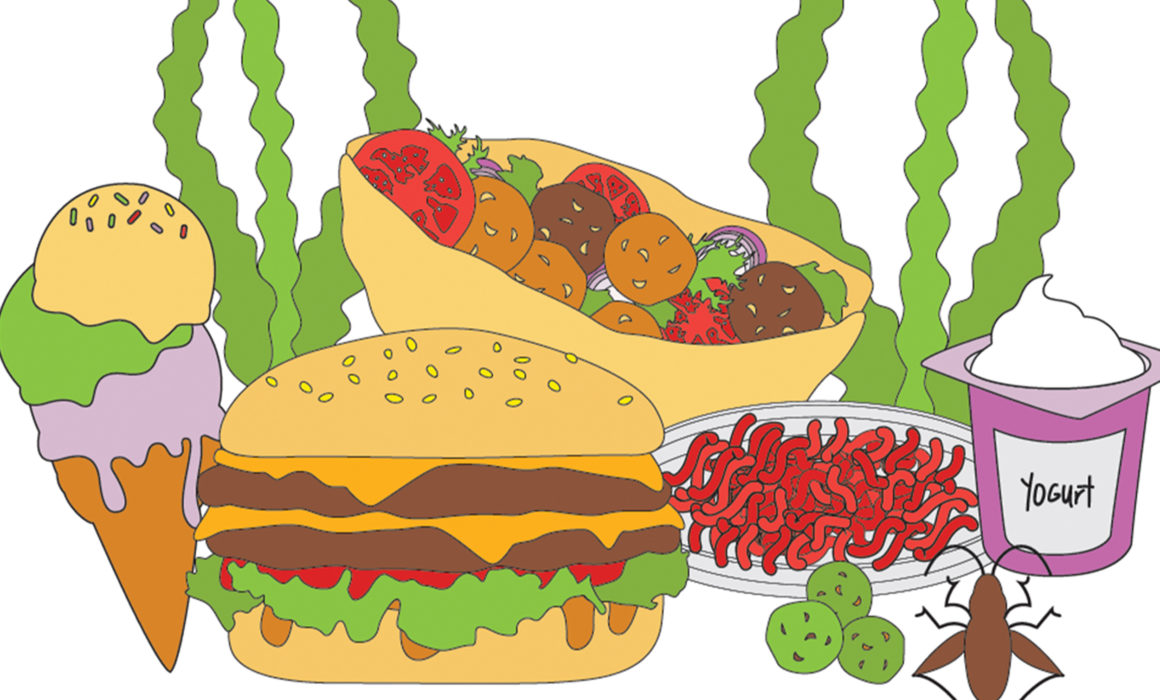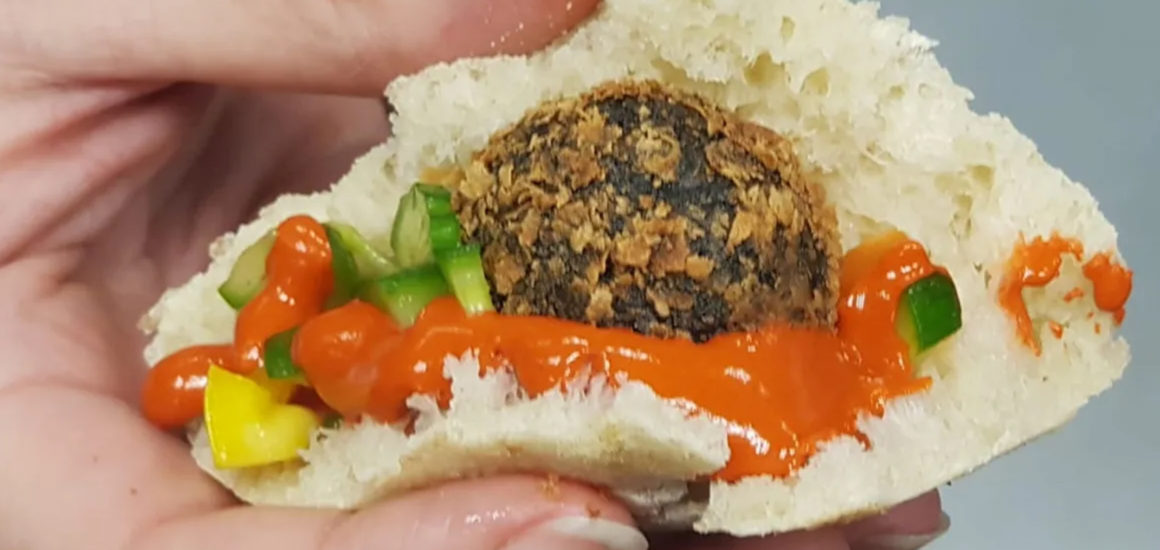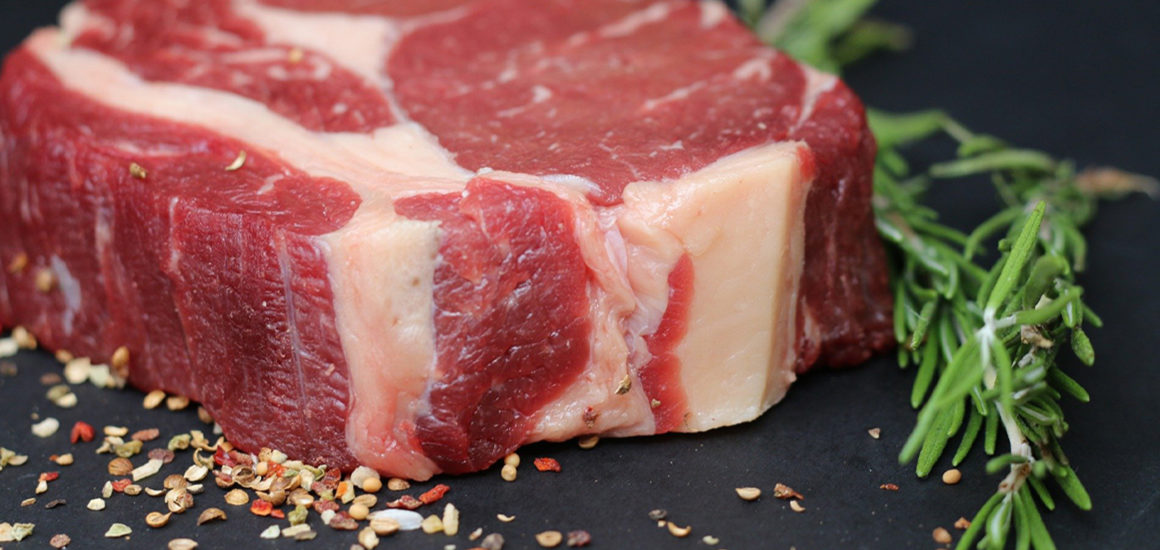Crickets, algae, and plant-based “meat” cranked out by a 3D printer? “Mouthwatering” may not be the adjective that comes to mind, but these nutrient-rich items could present a global solution to an impending food crisis.
One in 10 people around the world experience chronic hunger, according to a United Nations report. Countless others suffer from an imbalanced diet, and things are expected to only get worse. Experts predict that the world’s population will reach nearly 10 billion by 2050. Climate change, urbanization, and soil degradation will shrink the availability of fertile land. And high-protein food such as meat and poultry will become increasingly expensive. If we’re going to stave off a global food crisis, often called “the protein gap,” we’ll need healthy food alternatives.
“It’s our obligation as food professionals to put more options on people’s plates,” says Professor Uri Lesmes. So he and his colleagues in the Faculty of Biotechnology and Food Engineering are coming up with solutions.
Insects and Algae
Insects are protein-packed and far more eco-friendly than a herd of methane-spewing, pasture-grazing cows. A generation of crickets can grow in several weeks in a very small space, while it takes a cow many months to produce one calf. “They’re also ecologically friendly because some insects live off garbage, helping us transform wastes into valuable protein,” Prof. Lesmes notes.
But while some Westerners have warmed to the notion of eating bugs, most Americans have not. “What’s honey if not a form of bee vomit?” he says. “So the problem isn’t with the food but with the mindset.” Resetting that mindset, Prof. Lesmes and Ph.D. student Tanya David Birman have churned up a protein-packed ice cream, laced with powder ground from silkworm pupae, that tastes like cookies and cream ice cream.
The Technion is playing a major role in the Food Knowledge and Innovation Community of the European Institute of Innovation and Technology (EIT). The EIT’s goal is to revolutionize the food sector by supporting innovative, sustainable initiatives that empower consumers to make healthier choices. Sometimes that means creatively introducing strange new substances into more familiar fare.
Prof. Lesmes helped mentor a team of Technion master’s students in creating the award-winning Algalafel, a falafel spiked with spirulina, an algae rich in protein and iron and once consumed by the Aztecs. Food science experts say spirulina could be a potent weapon in the war against malnutrition. While a formal deal has yet to be announced, the students’ discovery has set the business world abuzz, resulting in many commercialization inquiries. Algalafel could be coming to a grocery store near you in the not-so-distant future.
A High-steaks Gamble
But will there still be double cheeseburgers and juicy prime rib on the menu of tomorrow? Innovators working with “clean meats” grown in a lab are close to creating a tempting slab of sirloin without the enviro-impact of real beef.
Professor Shulamit Levenberg, dean of the Faculty of Biomedical Engineering and holder of the Stanley and Sylvia Shirvan chair, is an expert on tissue generation and co-founder of startup Aleph Farms, which kicked off the race to commercialize the first cell-grown beefsteak. Her technology isolates the beef cells and seeds an intricate 3D structure capable of growing four different types of meat. Grown in the lab, test-tube beef could give engineers control over the fat content, making it healthier than traditionally processed beef. So far, Aleph Farms has focused on perfecting its taste and texture, which surpasses its competitors.
Another Israeli startup is working to serve up a steak from a 3D printer. Jet-Eat, explains Technion grad Alexey Tomsov, boasts a unique plant-based protein formula with just the right dash of amino acids. A digital file contains the desired properties of meat, and a special printer cranks out a surprisingly beefy plant-mix cutlet.
“Taste has been the number-one priority for us from day one,” says senior manager Tomsov. “People will eat the product, not the technology.” The clean-meat
avoids animal slaughter, saves dwindling pasture, and can be produced with a 96% reduction in greenhouse gas emissions compared to conventional meat production.
Even yogurt is going cow-free with Technion alum Ronen Lavee’s new Yofix, a no-dairy, no-soy, plant-based blend of natural ingredients such as oats, lentils, coconut, sunflower, and sesame seeds, plus beneficial probiotic cultures. “I did not want to compromise on taste, nutrition, or the natural aspect,” says the lactose-intolerant agriculture and mechanical engineering grad, whose recent product rollout also touted the yogurt’s low carbon footprint.
“Food is magical and hardwired to our emotions,” Prof. Lesmes muses. But practically speaking, he sees it as an orchestra of thousands of compounds. And the science-minded maestros at the Technion are setting the tempo for a revolution in sustainable food research and innovation. “Can we make every bite and every consumer count? That’s what’s driving me.”
Food is magical and hardwired to our emotions. Can we make every bite and every consumer count? That’s what’s driving me.
Professor Uri Lesmes




